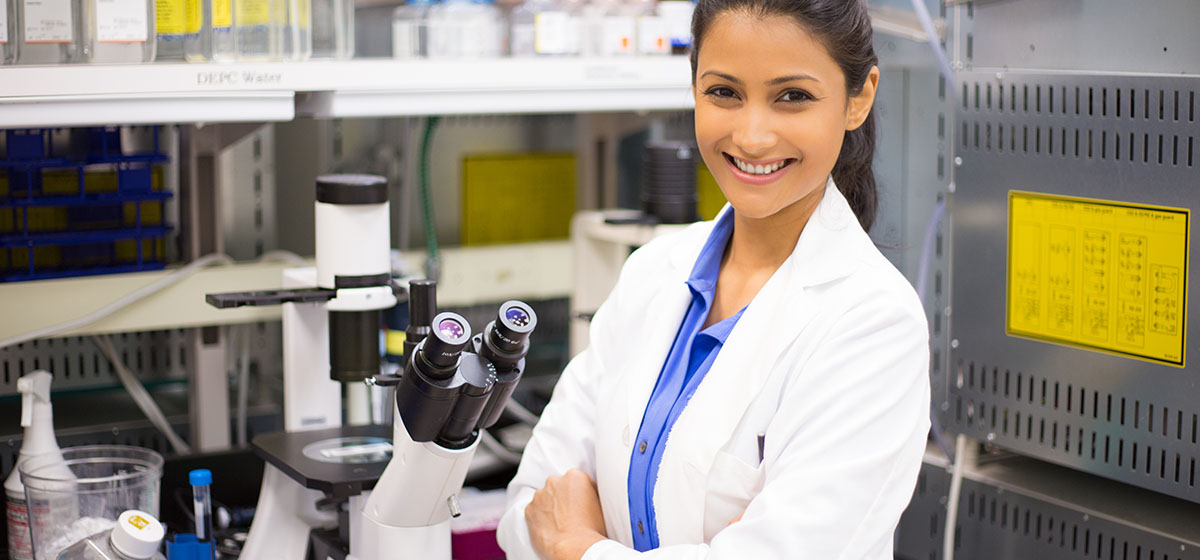Pathology
Ruby Diagnostic Centre
Helpline : 7980098210
Health care providers may be unfamiliar with the workings of the pathology laboratory.
The delivery of a specimen to the pathology laboratory initiates a complex series of events resulting in a pathologic diagnosis/interpretation.
The following section reviews the importance and key objectives in the pathologic evaluation of tissue and provides information on the types and members of the pathology laboratory.
IMPORTANCE OF PATHOLOGIC EXAMINATION
The diagnosis of cancer is not conclusively established, nor safely assumed, in the absence of a tissue diagnosis, nor should definitive therapy for cancer, with rare exception, be undertaken. Policies supporting this practice are written into the bylaws of most hospitals and are regularly monitored by hospital ethical committees and accrediting agencies.
The goal of pathology examination of tissue is to provide accurate, specific and sufficiently comprehensive diagnosis to enable the treating physician to develop an optimal plan of treatment. There are hundreds of varieties of tumors, most with characteristic biology, that require accurate diagnosis by pathologists. Data on markers with prognostic and predictive significance are also routinely incorporated into pathology reports, allowing individualized treatment plans for patients. It is not only important to obtain sufficient tissue for a specific diagnosis of malignancy, but for many malignancies, additional tissue is required for prognostic and predictive ancillary studies like immunohistochemistry and cytological diagnostic approach.
While, some have postulated that we are moving toward a gene/mutation driven categorization of tumors replacing disease site clinics and treatment planning (e.g., PIK3CA mutated carcinomas instead of “ovarian” cancer or “breast” cancer), data is accumulating that histology, morphology, disease site location and microenvironment in addition to genomic changes are still important factors in understanding the disease biology for treatment planning.
TYPES OF PATHOLOGY LABS
HOSPITAL LABS
Almost all hospitals contain a laboratory to support the clinical services offered at the hospital. The specific pathology services would include both anatomic (surgical pathology, cytopathology, autopsy) and clinical (laboratory medicine) pathology at most hospitals. Most, if not all, inpatient and many outpatients seen by hospital-affiliated physicians require tests performed by hospital labs.
REFERENCE LABS
Reference labs are usually private, commercial facilities that do both high volume and specialty (high complexity and/or rare) laboratory testing. Most of these tests are referred from physician’s offices, hospital facilities and other patient care facilities such as nursing homes. Reference labs, typically located at a site other than the healthcare facilities, are often used for specialized tests that are ordered only occasionally or require special equipment for analysis.
PUBLIC HEALTH LABS
Public health laboratories are typically run by state and local health departments to diagnose and protect the public from health threats such as outbreaks of infectious disease. These labs perform tests to monitor the prevalence of certain diseases in the community which are a public health concern, such as outbreaks of food borne or water borne illnesses or detection of unique infectious agents.
MEMBERS OF THE PATHOLOGY LAB
Pathologists
Physicians with special training in the diagnosis and detection of disease. Practicing pathologists may be subspecialty or general pathologists, depending on the types of cases they review on a daily basis. Some pathologists may perform a subspecialty fellowship in a specific area of pathology such as cytopathology, dermatopathology, nephropathology, neuropathology, oncohaematology, etc.
Pathologists' Assistants (PAs)
These individuals assist with the gross description and dissection of surgical cases and biopsies, working closely with supervising pathologists. PAs may also assist in the technical aspects of intraoperative assessment such as frozen section and selection of tissue for research and clinical trials (tissue procurement).
Cytotechnologists
These individuals assist in screening specimens that are composed of small samples of cells rather than whole sections of tissue, e.g., Pap smear specimens. After screening and marking diagnostic cells in slides, a cytotechnologist refers cases with abnormal cells to pathologists for review. Other common cytologic specimens include fine needle aspirations (FNAs), washings or scrapings of cells and other body fluids.
Histotechnologists
These individuals manage the processing of tissue in the laboratory and perform the technical components of making slides from tissue for evaluation by a pathologist. These components include the process of fixing the tissue, embedding it in paraffin, sectioning tissue onto slides and staining of the tissue on slides.
CLINICAL PATHOLOGY WHICH ENCOMPASSES LABORATORY MEDICINE INCLUDES THE FOLLOWING:
Pathologists' Assistants (PAs)
These professionals provide direction of clinical labs to ensure accurate and timely reporting of lab tests and serve as a resource for result interpretation to clinicians. Individuals often have specific training in one or more of the following areas: clinical chemistry, microbiology, molecular pathology, hematology, immunology, immunofluorescence study, fluorescence assorted cell cytometry, etc
In a conventional 12-lead ECG, four electrodes are placed on the patient's limbs and six electrodes on the chest wall. The overall magnitude of the heart's electrical potential is then measured from twelve different angles ("leads") and is recorded over a period of time (usually ten seconds). In this way, the overall magnitude and direction of the heart's electrical depolarization is captured at each moment throughout the cardiac cycle. The graph of voltage versus time produced by this noninvasive medical procedure is an electrocardiogram.
Medical laboratory technicians
These health care professionals perform laboratory testing and analysis on body fluids and other specimens to help determine the presence or absence of disease.
Phlebotomists
These health care professionals are trained to draw blood from a patient for clinical testing, transfusions, donations or research.
Biochemistry
One of the busiest departments.
Equipped with all state-of-the-art fully equipped high throughput instruments.
Spectrophotometric, turbidimetric, nephelometric, immunofluorescence, ELISA and HPLC techniques are followed.
Hematology
A combination of high-edge cell counters, well trained and experienced DMLT technicians and expert pathologists.
All critical results twice-checked and reported urgently over telephone.
Microbiology & Serology
An exceptionally important department in the age of antibiotic resistance, nosocomial infections, ICU/ITU, atypical infections etc.
Clinical Pathology
Studies of semen, urine, sputum, secretions and fluids.
Detection of parasites/infective agents in urine/stool
Detection of pus cells, blood or stone forming crystals in urine
Detection of occult blood in stool/urine
Detection of hemosiderinuria
Detection of various chemical factors, pH etc.
Cell typing and cell counting in all body fluids/secretions
Histopathology & Cytopathology
This department deserves mention because we are really determined to give the valuable reports very rapidly yet accurate and at low cost and agreed by at least three experienced pathologists.
Hormone Assays
Useful in assessment of amenorrhea, menopause, infertility, diabetes, thyroid problems, abnormal uterine bleeding, tumors and chromosomal disorders etc.
TSH, T3, T4, PROLACTIN, INSULIN, GLUCAGON, STEROIDS, FSH, LH, HBA1C etc.
All kinds of hormone assays are performed under expert technical guidance and full automation.
The reports are provided within few hours.
Immunology
Extremely important in the age of arthritis, hepatitis, chronis skin diseases, eye problems, GIT/Kidney problems, collagen vascular diseases etc.
ANA, HLA-B27, ASO, AUTO-ANTIBODIES are studied regularly.
We perform all hepatitis markers, viral & bacterial markers with high precision
Quick links
- Emergency Services
- International Patient Services
- Corporate Tie-Up
- TPA & Cashless Facilities
- Find a Doctor




















